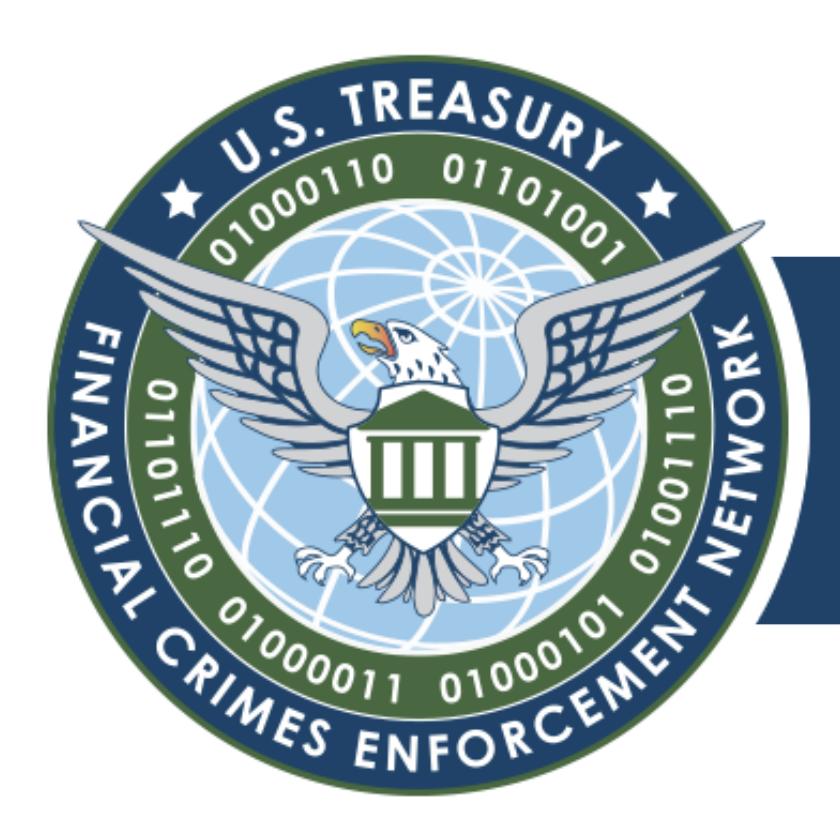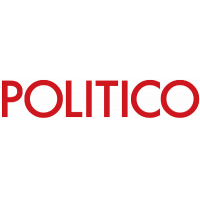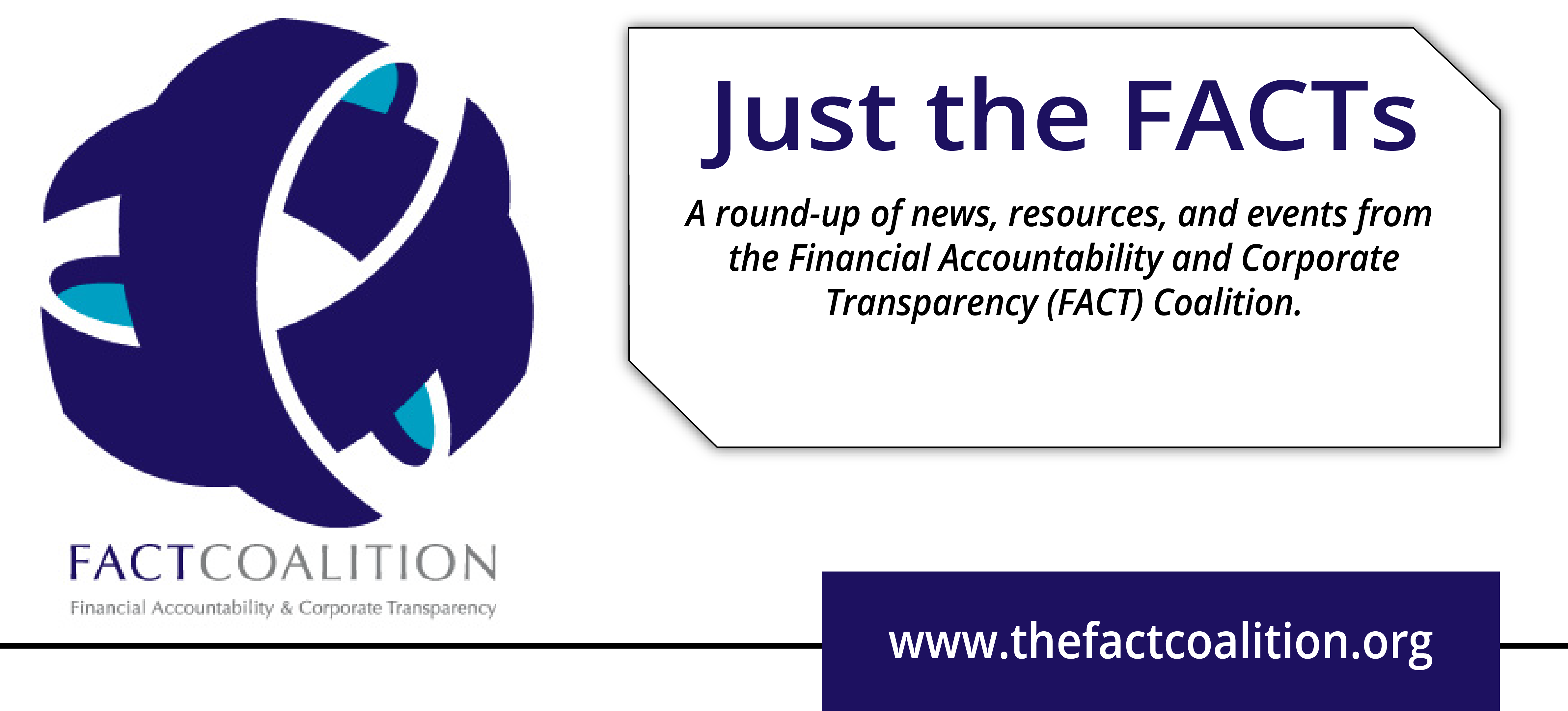“Just the FACTs” is a round-up of news stories and information regarding efforts to combat corrupt financial practices, including offshore tax haven abuses, corporate secrecy, and money laundering through the financial system.
Send feedback or items for future newsletters to Patricia Ainembabazi at painembabazi@thefactcoalition.org
Here is the State of Play
New Alert on Russian Sanctions Evasion Demonstrates Need for Anti-Money Laundering Safeguards in Commercial Real Estate and Private Investment Funds

In an alert issued on January 25, the U.S. Treasury’s Financial Crimes Enforcement Network (FinCEN) highlighted sanctions evasion and money laundering-related vulnerabilities in the U.S. commercial real estate (CRE) sector. The vulnerabilities identified by FinCEN only further reinforce the need for comprehensive regulatory action to address money laundering in the $50 trillion U.S. real estate market.
The relative stability of CRE markets, the high-average dollar values of CRE transactions, and the frequent use of opaque ownership structures and complex financing methods to facilitate purchases all combine to make commercial real estate a particularly attractive vehicle for sanctioned Russian oligarchs and government officials to hide illicit funds within the U.S. financial system.
Existing measures designed to combat real estate money laundering (REML) in the U.S., such as geographic targeting orders (GTOs) – which require beneficial ownership information to be reported by entities making all-cash real estate purchases in a limited set of jurisdictions – do not currently cover commercial real estate purchases.
A long-awaited draft rule targeting money laundering through U.S. real estate is expected to be released in April, as announced by the Treasury Department earlier this month. Though the content of the eventual draft rule remains uncertain, the FACT Coalition and other advocates have repeatedly stressed the importance of coverage for CRE purchases to the efficacy of any new regulatory regime.
FinCEN’s alert also highlighted the risks posed by existing gaps in the U.S. anti-money laundering (AML) framework related to certain pooled investment vehicles, including private investment funds. As FACT has previously detailed, a near-complete lack of AML protections across the entire $11 trillion private investment fund market gives bad actors broad access to U.S. markets.
The White House has signaled that closing this glaring gap in AML coverage is a priority, and FACT has urged FinCEN to release an advance notice of proposed rulemaking to apply comprehensive, consistent AML obligations on private investment funds and investment advisers based on existing regulatory authorities in 2023.
More information – including FACT’s full recommendations to Treasury for the upcoming draft real estate rule – can be found here. More information regarding FACT’s recommendations regarding regulatory action on private investment funds can be found here.
Treasury, DOJ Actions Highlight Illicit Financial Flows in Digital Asset Markets

On January 18, Treasury’s FinCEN identified the Hong Kong-based cryptocurrency exchange Bitzlato as a primary money laundering concern related to Russian illicit finance, effectively cutting the exchange off from U.S. and foreign banks. That same day, Bitzlato’s majority shareholder and co-founder was arrested in Miami on charges of operating a business that the DOJ characterized as a “money laundering engine.”
The relative opacity of burgeoning digital asset markets has long been a source of concern for anti-corruption and financial transparency advocates. A recent report from the Atlantic Council cited insufficient regulation on cryptocurrency exchanges as one of four major vulnerabilities in the U.S. anti-money laundering framework, exposing American markets to abuse by kleptocrats and other bad actors.
Last November, the FACT Coalition submitted comments to Treasury containing regulatory recommendations to promote the responsible development of digital asset markets in the U.S. Though digital asset exchanges were brought under Bank Secrecy Act reporting requirements by the AML Act of 2020, the development of methods used by criminals to conceal their identities and assets through cryptocurrency exchanges has largely outpaced regulatory efforts.
Per FACT’s comment letter: “Treasury must move quickly to apply current U.S. AML/CFT safeguards to digital assets without creating loopholes or unintended consequences that may subject U.S. markets to abuse by corrupt or criminal actors.”
FACT in the News

Published In: Corporations Face a Show-and-Tell on their Overseas Taxes
FACT policy director Ryan Gurule was quoted in coverage for PoliticoPro of the mounting investor demand for public country-by-country reporting (PCbCR) of tax data by large multinationals. Addressing proposed action by the Financial Accounting Standards Board (FASB) to require limited disaggregation of data from reporting companies, Gurule noted that “This is about having better informed markets that understand what contributes to the profitability of the multinational selling their securities in the public market.”
“This is not about shaming,” said Gurule. “This is about the bottom line. FASB wouldn’t be doing this if they didn’t understand that investors are calling for this.”
Recent and Upcoming Events

January 24: Report Launch – Stopping the Kleptocrats: A Strategy for the United States and Europe to Address Weaponized Corruption.
The Atlantic Council launched its latest report, Stopping the Kleptocrats, this week at an event featuring remarks by Senator Sheldon Whitehouse (D-RI), followed by a roundtable discussion with sanctions and anti-corruption policy experts, including Global Financial Integrity’s Lakshmi Kumar.
A recording of the report launch event is linked above. Read the full report here.

February 8: DC Forum Conference
Join FACT member Global Financial Integrity (GFI) for a full-day conference addressing financial secrecy and its role in “undermining democracy, capitalism, and ultimately the basic freedoms we enjoy.”
FACT Executive Director Ian Gary will join other experts and anti-corruption advocates for a policy panel at 2:55pm. The event is timed with the launch of a new book, Invisible Trillions: How Financial Secrecy Is Imperiling Capitalism and Democracy – and the Way to Renew Our Broken System, by Raymond Baker, founding president of GFI. Register via Zoom here.

February 14: Comments Due – Beneficial Ownership Information Access and Safeguards NPRM
Public comments on FinCEN’s second draft rule for the Corporate Transparency Act – which details access protocols for the beneficial ownership information registry to be established by FinCEN – are due on February 14.

March 15 – 17: Pan-African Network Conference on Fighting Illicit Financial Flows in Africa Theme: From Words to Actions
The African Union’s upcoming conference aims to inform international and regional audiences about various anti-IFF initiatives intended to curb the flight of resources from the African continent, promote sustainable development, and encourage economic growth.

March 20: Comments Due – Forms for Submitting Beneficial Ownership Information
FinCEN is soliciting feedback on the forms that reporting companies will use to submit their beneficial ownership information to FinCEN, in accordance with the first final rule implementing the Corporate Transparency Act. Comments are due March 20.

March 29-30: Second Summit for Democracy
The mixed-format Second Summit for Democracy will bring together government, civil society, and private sector leaders from around the globe to reflect on progress made during the past “year of action,” and to establish new anti-corruption, pro-democracy, and accountability commitments.
About the FACT Coalition

